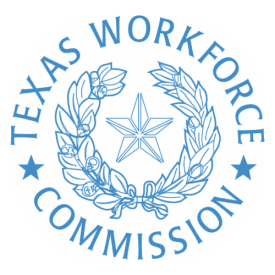TWC Announces $1.5 Million in Funding for Pilot Program to Support Foster Youth
Style Magazine Newswire | 3/1/2017, 9:29 a.m.
AUSTIN ⎯ The Texas Workforce Commission (TWC) is seeking education partners for a pilot program to help increase the number of Texas foster youth who graduate from high school. TWC announced the availability of $1.5 million in funding for the Foster Youth Dropout Recovery and High School Completion pilot program that will help current and former 16- to 25-year-old foster youth earn a high school diploma or its equivalent, with the opportunity to gain workforce skills and a pathway to employment or postsecondary education.
This initiative was included among the recommendations of the Tri-Agency Report to the Governor: Prosperity Requires Being Bold: Integrating Education and the Workforce for a Bright Texas Future released this fall. Commissioners from TWC, the Texas Education Agency and the Texas Higher Education Coordinating Board included it among the major initiatives to support the recommendation to identify statewide efforts for the next generation that will make Texas the clear leader in targeted fields and position the state for future economic success.
“The Foster Youth Dropout Recovery and High School Completion pilot program is an important collaboration between education and workforce agencies to help guide and ensure Texas foster youth have opportunities to obtain a post-secondary education degree or gain workforce skills needed for sustainable employment and a stable future,” said Governor Greg Abbott.
The TWC funds will be used to create at least three 18- to 24-month high school completion pilot programs for current and former foster youth that will:
Identify and assist current foster youth who are in high school, but lack sufficient credits to graduate, or youth formerly in foster care who are out of school to gain a high school diploma or its equivalent and obtain high-demand skills certifications, mentoring and career guidance
Support internships and applied learning opportunities for these individuals
Offer support services, including helping program participants learn how to access available tuition and fees and other financial support for postsecondary education and training opportunities
“We all have a responsibility to help these young people succeed,” said TWC Chairman Andres Alcantar. “This innovative program will create a partnership model for how to set foster youth on the path to workforce success through education and skills attainment.”
According to the Texas Education Agency, approximately 23,000 students in foster care attend Texas public schools during the school year. Students in foster care lag behind the student population in high school completion.
“We are pleased to take this step to help these individuals gain marketable skills,” said TWC Commissioner Representing Employers Ruth R. Hughs. “It not only helps them become independent adults, it also helps meet the growing demand for skilled workers in Texas.”
Independent School Districts (ISD), public community colleges or state universities, and public technical institutes in collaboration with local ISDs can partner with a foster youth care transition center and a local workforce development board and apply to participate in the pilot program through a published Request for Proposal Foster Youth Dropout Prevention and Recovery High School Completion Pilot Program 320-17-08 on the Texas Comptroller of Public Accounts Electronic State Business Daily web page at http://esbd.cpa.state.tx.us/bid_show.cfm?bidid=130928.
“Gaining higher education credentials and workforce skills through this program will provide opportunities for job seekers to transition into the Texas workforce,” said TWC Commissioner Representing Labor Julian Alvarez. “This program will complement our other services for current and former foster youth.”
This initiative builds on TWC’s ongoing commitment to improve the outcomes of current or former foster youth including its support of foster youth transition centers that serve both current and former foster youth between the ages of 14 and 25.




